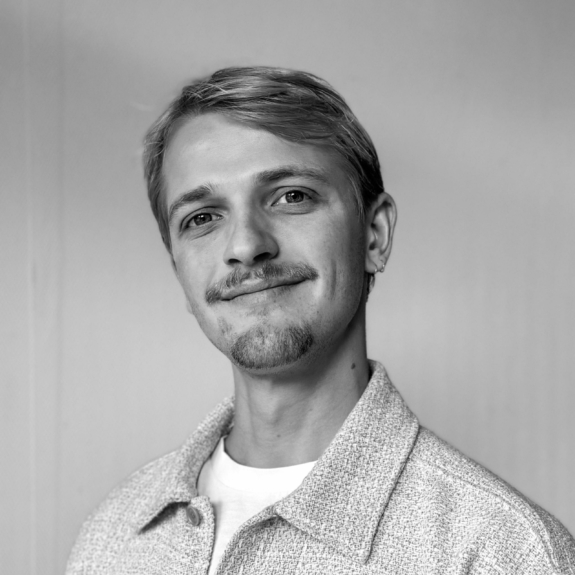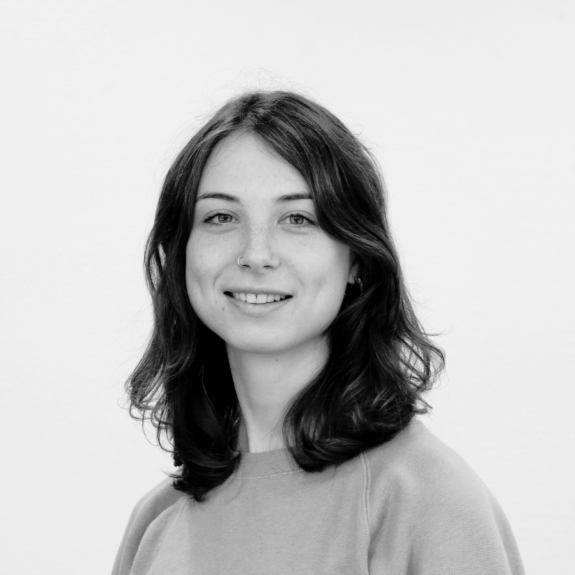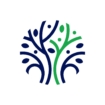Interview with LDE trainees Boje and Charlotte
The LDE traineeship is the joint trainee programme of Leiden University, the Technical University of Delft, and Erasmus University Rotterdam. It provides the opportunity to work at two universities, in two different positions, at each of which you spend one year. Furthermore, it focuses on support staff positions, providing trainees with personal coaching and courses focused on personal development as young professionals.
Over the past year, we at LLInC have had the pleasure of hosting two LDE Trainees, Charlotte and Boje, for their first placements. To discover more about their experience on the programme as well as with us at Leiden University and LLInC, take a moment to read their interviews and join us in wishing them all the best for the future!


Boje (left) and Charlotte (right)
Can you briefly introduce yourselves as well as your roles at LLInC as LDE Trainees?
Boje: Hi! My name is Boje and for the past year I’ve been working as a Project Leader at LLInC for the Innovation, Strategy and Policy team as part of my first year of the LDE traineeship.
Charlotte: My name is Charlotte, 27 years old and I live in Rotterdam. Last year I started to work as LDE-trainee. I finished my masters Social Inequalities in June 2023 and was very excited to start working fulltime. This past year I was part of the Communication Commission with LDE and worked as trainee project lead at LLInC within the Learning & Innovation Team.
Over your year at LLInC, what have you been working on and what skills has this enabled you to gain/develop?
Boje: I conducted a plurality of tasks at LLInC. My main project has been an individual research project about the ecosystem of educational innovation within Leiden University. I furthermore coordinated a pilot in which we experimented with a new way of evaluating courses. Lastly, I assisted two project managers in a project to implement a new digital assessment tool. These various tasks enabled me to have a first-hand insight into what it takes to run different sorts of projects. I further developed skills such as communicating efficiently, presenting, listening, planning and organising in a professional context.
Charlotte: The first project I became a part of was the team of Learning Mindset. This project focuses on empowering and motivating students to become more self-regulated learners. I coordinated different sub-projects, such as the re-organisation of a project management tool, mapping out the various levels of interventions, the creation of a new website, the hiring process of a new team member, and the recreation of planners. I gained organisation and communication skills, but also knowledge about new, different programs, such as Affinity Publisher, Monday, and Wix.
Aside from the Learning Mindset project, I have coordinated the implementation of a new Learning Management System (LMS) for the Training Office. The Training Office (formerly known as Cursusbureau) is the part of LLInC that organises trainings for, amongst others, the BKO. Together with Karen, I looked at the possibilities for using a new LMS-system that could arrange a lot of the administrative tasks that were then done manually. It was decided to go ahead with the system and I then carried out the rest of the project, meaning that I made myself familiar with LMS, collaborated closely with ASSC, ensured a smooth transition, reorganized internal processes, onboarded all trainers, created communication plans, onboarded Xiaojun our new colleague for the Training Office, created a yearly planning, and much more.
Additional to the projects above, I carried out my own small research project on sensitive discussions in education. The aim of the project was to map out different experiences with regard to sensitive discussions in lectures, and to point out opportunities for tools in this field. I carried out qualitative interviews with university teachers and D&I experts. I then analyzed the data and wrote a report. This project enabled me to further develop my qualitative research and writing skills.
Furthermore, there were some other projects that I partook in, such as the introduction of using MS Projects in the whole of LLInC. Together with Melissa and Anthea, I ran a small pilot on the daily usage of MS Projects.
Are there any particularly noteworthy insights which you’ve gained into the field of education or, indeed, any others with which your role has brought you into contact?
Boje: Through involvement in these projects, I gained huge insight into working at a university, the field of higher education, but in particular into educational innovation. With a background in sociology, this field was fairly new to me. Hence, the full experience has been quite overwhelming, especially in the beginning. I needed to learn many new things to not only understand how a decentralised university operates, but also to grasp the topic of innovation and how it is governed, supported, and maintained, so that I could make valuable contributions to the organisation.This has sparked a new topic of interest for me, which is particularly relevant given the rapidly changing nature of society where a forward-thinking approach is broadly applicable.
Charlotte: It was very interesting to gain a deeper understanding of the university functioning as organisation. The university is such a big organisation, with all these separate departments functioning as their own small organisations. That was very interesting to notice.
How have you found working at LLInC and how has this experience as an LDE Trainee helped you in terms of furthering your career?
Boje: My experience at LLInC has been really nice. The variety of tasks I have been involved in has shaped my fields of interests more and facilitated my first insight into the field of project management. Furthermore, I know better what I am good at, what I like and what I don’t like, or would prefer not spend the majority of my time on. An example of this could be found in the research project I conducted. I really liked the fact I could go out into the university, conduct interviews with people from within the faculties, and share my experiences and results with other people through, for example, a presentation. The time investment required for a comprehensive report was something I had more of a struggle with, and I have noticed that this is something I need to tackle differently in the future (e.g. keep the final report shorter/share results in a different way). Going forwards, I’ll be better able to create a good balance between such matters.
Charlotte: I like the versatility of project management, with all those different aspects of carrying out a project. I gained experience in the field of organisational management, project management, communication, research, and design. These experiences have helped me in the discovery of my own strengths, weaknesses, and interests.
What are your next steps from here?
Boje: Next year, I’ll be working at TU Delft at the department of Strategic Development. More specifically, my work will be related to the topic of knowledge security. I’ll be developing and implementing communication tools to raise awareness about the (urgency of) the topic of knowledge security. As you can see, something totally different than I have done over the last year. That is, however, that best part about the LDE traineeship: the possibility of encountering a variety of topics and activities.
Charlotte: From September onwards I will work as a second-year trainee at the Diversity and Inclusion Office at Mechanical Engineering, TU Delft. The goal is to write a multi-year plan for the faculty. I am very much looking forward to engaging myself with this subject and further deepening my knowledge as well as the policy-side of it.

